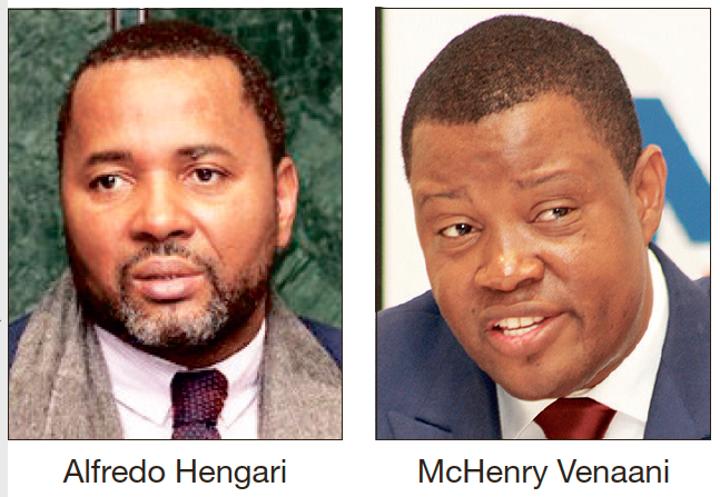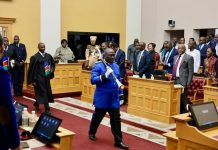Africa-Press – Namibia. PRESIDENTIAL press secretary Alfredo Hengari has accused Popular Democratic Movement (PDM) leader McHenry Venaani of trying to score “cheap points”, using the 1904 to 1908 genocide.
He said the leader of the official opposition used his discussion with president Hage Geingob regarding the matter as an opportunity to “name drop for points on a serious matter”.
Venaani on Tuesday alleged that Geingob had recently asked him to accept the agreement between the Namibian government and its German counterpart on the genocide without any legal obligation.
According to Venaani, the president told him the government, in collaboration with concerned stakeholders, would renegotiate the amount offered by the German government after the acceptance of Germany’s apology in the National Assembly (NA).
Currently, the agreement or declaration of apology submitted to the NA contains an offer of roughly N$18 billion as compensation for the atrocities perpetrated against the Nama and Ovaherero communities.
This would be paid to Namibia in various forms, including in support of developmental projects, over a period of 30 years. Venaani made these remarks after five political parties represented in the NA staged a demonstration to express their discontent with the recent genocide deal.
Hengari on Tuesday said Venaani’s remarks were entirely incorrect, out of context and that he made selective quotes. “Also, it is rather concerning for a leader to reveal the contents of a tête-à-tête of which deliberations were not for the public,” he said.
Swapo’s Paula Kooper yesterday said there was never an intent to exclude the affected communities as they were included in the negotiation process, but said universally, states negotiate with states.
She said the affected communities were represented by the chiefs’ forum. She said the offered amount should be reviewed, and that the government has been advised to have one foot in the door and engage on the issue.
It is best to find alternatives on how Namibia can get what it deserves as opposed to not accepting the deal, Kooper said. Although community members expressed their opposition to the offered deal, she said the opportunity “to keep the fire burning” should not be used to divide the nation.
However, the different opposition parties yesterday in the NA maintained that the affected communities were not adequately consulted. ‘NOT BINDING’ Jürgen Zimmerer, a historian of German descent, yesterday said he was informed by German law experts that the agreement is a non-binding agreement, which merely states the intention to pay the projected amount of money.
“Of course the current German government intends on following through on its promise, however, who knows what will happen in 15 years or so? Since the agreement states that the term genocide is not acknowledged as a legal crime, but as a modern description, it rejects any legal responsibility to pay. The agreement is also deliberately not using the term reparations, but speaks merely of assistance,” Zimmerer said.
The historian said ‘reconciliation agreement’ is a misnomer, given local resistance to the agreement. He said reconciliation is further away than it was six years ago.
“Germany bears a responsibility for this as well,” he said. Zimmerer said the German government has repeatedly stated that with the acceptance of the agreement, the case would be closed.
He does not think there will be fundamental revisions regarding the amount, he said. “If the Namibians are not happy with the agreement the parliament needs to say so by not accepting it,” Zimmerer said.






